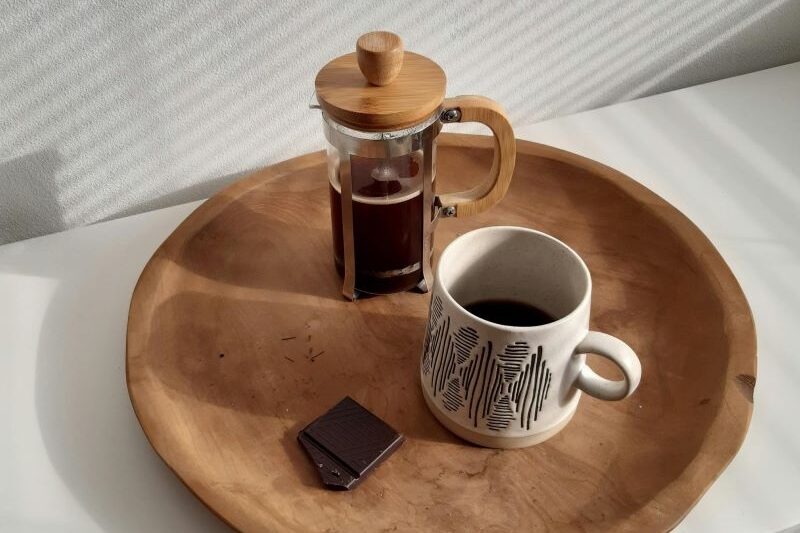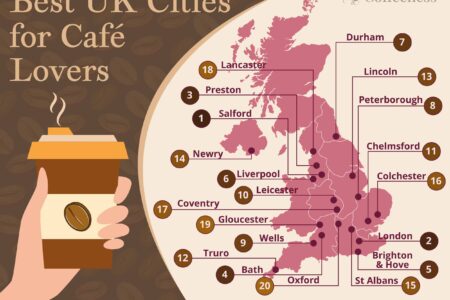Specialty coffee: leading chocolate by example

Image: Pexels/Michaela S.
I recently attended Amsterdam Cocoa Week on behalf of another one of Bell Publishing’s titles, Confectionery Production, and while it was of course cocoa and chocolate centric, the conferences and trade show of the week also discussed many issues which currently abound in the tea, and particularly coffee world. This especially included topics such as farmer pay, sustainability, deforestation, and the new EUDR regulations which are presenting significant challenges but also interesting opportunities for farmers worldwide.
While cocoa and coffee may both share some challenges, Spencer Hyman, founder of Cocoa Runners, explained in his talk as part of the Cocoa Makers Forum, how there are learnings that cocoa should takeaway from the coffee industry. Even though the global sales of coffee and chocolate are generally pretty similar, coffee dominates when it comes to specialty, or what in the chocolate world is known as craft chocolate. According to the SCA (Specialty Coffee Association), 15-25% of coffee sales are specialty coffee, whereas it is estimated that only around 0.2-0.5% of chocolate is sold as craft chocolate.
Coffee has succeeded in creating its own everyday coffee specialists in consumers, the people who are grinding their own beans, deliberating between medium or dark roast, weighing their coffee to get the exactly right ratio to water. While they may not be professional, a lot of consumers nowadays would consider themselves somewhat amateur experts and this has fuelled the world of specialty coffee, something that has been enabled by social media and the ability it gives its users to delve into and learn everything about a specific topic, as well as sharing their own learnings.
Building on this, is the out of home consumption of specialty coffee. Hyman argued that this is something else the specialty coffee world has got right; about 80% of specialty coffee is consumed in coffee shops. “If you want to be super cool and super trendy and you want to take out a date, you don’t really go to a Starbucks or to a Costa’s, but you would go to a specialty coffee store,” said Hyman, so it has that reputation of being somewhere people can meet and coffee is therefore inherently social. This opens the door for specialty coffee shops to become a commonplace part of consumers lives, despite by definition, specialty coffee being anything but commonplace.
This is unlike the consumption occasion with chocolate, which is often a guilty secret, scarfed under a desk or snuck out of a kitchen cupboard. Hyman also added that craft chocolate is very often just made into a bar format, which is not a social or shareable format, in the same way a box of chocolates might be. He emphasised the importance of format in dictating the occasion. Meanwhile coffee can be shared, a cafetiere can be made, someone in the office offers to make a round, you order your friend a coffee at a café.
Then not only is it social, but the experience of consuming specialty coffee is often educational, especially out of home at a coffee shop. “You cannot go into a specialty coffee store without getting a lesson, even if it’s accidental, as you’re waiting for your specialty coffee,” continued Hyman. Whether this be where the beans have come from, how they were processed, how they were roasted, “by osmosis,” Hyman said, consumers pick it up and develop their interest. The SCA also invests in educational programmes. There are courses and cuppings that people can attend to really understand what makes specialty coffee specialty, providing more opportunities for people to learn and opening up the category to as many people as would like to be a part of it.
Crucially, Hyman highlights the importance of a clear definition in specialty coffee’s success; 80 points or higher on the SCA Q Grading Scale and it is specialty coffee. Whereas craft chocolate has no such distinction. If something cannot be defined and identified, how can it succeed and be marketed? When Hyman said this it made me think about the feature I wrote for our March magazine issue (which is also the featured article in this week’s newsletter and is now available on the website), discussing premium vs specialty tea. In it, the same question is raised about the need for a definition of specialty, in this case it is tea, which the article demonstrates to have an ambiguous vocabulary when it comes to premium and specialty teas. There is so much interest and popularity for specialty coffee, and it seems like the definition and the unanimous agreement of vernacular is crucial, and this is something both tea and craft chocolate could benefit from.
- Kathryn Brand, associate editor, Tea & Coffee Trade Journal.
Keep in touch via email: [email protected] Twitter: @TCTradeJournal or LinkedIn: Tea & Coffee Trade Journal



